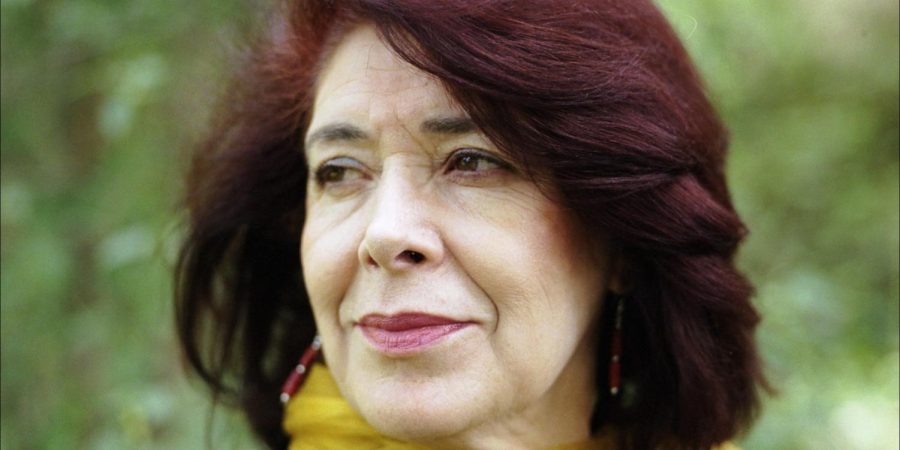Islamic feminists continue to advocate for women
Viewing Islam through feminist lens has allowed for the empowerment of women in the global south
Assia Djebar is a famous Islamic feminist.
April 21, 2022
Within parts of the Global South, ‘feminism’ has largely been considered an alien concept. ‘Western’ or ‘secular’ feminism, in particular, is often seen as a product of the West’s cultural intrusion that challenges differing cultural norms and traditions. To preserve cultural and ideological sovereignty, some feminists frame issues of gender justice within the context of local norms and traditions. Over the last thirty years, a nascent strand of feminist thought, known by most as “Islamic feminism,” began to emerge in the Middle East and South Asia. Islamic feminism emerged to challenge patriarchal norms of the family and society by re-interpreting the Qur’an (ijtihad) through a feminist lens. By engaging with Islam directly, these feminists seek to challenge the privilege afforded to Muslim males. Through disruption of Islamic doctrine and customs, Islamic feminists seek to usurp normative cultural and social attitudes from within.
Fatima Mernissi and Assia Djebar, for instance, argue that the formative years of Islam created a predominantly male narrative tradition that rendered women invisible. Mernissi and Djebar have worked to highlight the accomplishments of Muslim women by reexamining Islamic history. Such an examination is also seen in Moustapha Akkad’s film “The Message”. To quote Elizabeth Thompson, “The Message” focuses on the Prophet Muhammad’s message of “radical equality” and social justice. The film highlights the conversion of Bilal ibn Rabah, a slave owned by the Umayyads and a ban on infanticide (among other progressive measures). Akkad suggests that Islam’s formation challenged the capitalistic cabal in Mecca with an emancipatory conception of social justice.
Islamic feminists in South Asia rely upon such an interpretation to promote women’s empowerment. By recovering and enforcing the rights of women within the Qur’an, these feminists have challenged patriarchal marriage norms such as gendered seclusion (nikah). In India, Islamic feminists have also made attempts to create their own religious spaces. In the southern state of Tamil Nadu, the Muslim Women’s Jamaat created an all-women’s mosque in Pudukkotai. Some of the most vocal Islamic feminists can be found in Iran. These feminists play an important role in expanding the discursive tradition of Islam and improving legal literacy within a religious framework.
Despite their progress, many Muslim women working toward gender justice are wary of identifying themselves as “feminists.” Historical baggage associated with the term can create cultural barriers within the Global South. Those who call themselves Islamic feminists have faced pushback — both from Western feminist circles and from Islamic scholars.
Western feminism generally displays discomfort with the confines of organized religion, and secular feminists have often contended that organized religion is not conducive to a liberating theory of gender justice. These feminists view the Islamic feminist project as inadequate or even dangerous to the pursuit of social justice. Haideh Moghissi, for example, contends that women’s rights should stem from universal premises and should not be undermined by specific socio-cultural barriers. In other words, so long as these feminists rely upon Islam, their goals will be circumscribed and compromised by local norms.
The traditional religious establishment also tends to ostracize Islamic feminists who use ijtihad (independent juridical reasoning) to expand notions of tawhid (knowledge of God) to operate in the context of historical reality. You would be hard-pressed to find Islamic clergymen who accept the feminist reinterpretation of the asbab al nuzool (context of revelations) or the feminist recontextualization of the Hadith (traditions and sayings of the Prophet). Interference with sanctioned interpretations of Islam is viewed as a misguided and even heretical enterprise. With criticism from secular feminists and Islamic scholars, some have asked whether Islamic feminism can even exist, raising the question of whether Islam is mutually compatible with feminism or a contradiction in terms.
Given the multiplicity of feminist thought, I would contend that Islamic feminists deserve greater recognition. On a practical level, engagement within localized cultural and historical frameworks makes interrogation of gender rights impossible to ignore. Local officials cannot simply cast off “Islamic feminists” as products of colonial or Western thought if they base their theories on gender justice on Qur’anic thought. Islamic feminists can bargain with religious and state authorities because they understand historical and cultural realities. Discourse on Islamic feminism has created a lexicon that young women within the Global South are able to use to challenge patriarchal social norms. Accordingly, Islamic feminism has gained greater recognition and legitimacy within the Middle East and South Asia. It is important to remember that Islamic feminism is not borrowed, derivative or “secondhand” — it is a product of the efforts made by feminists within a localized domain.
Perennial attempts to discredit these feminists simply because they inhabit the pro-faith position is misguided. Western feminists must realize that Islamic feminism speaks ‘in the name of’ women who refuse to choose between the ‘road to feminist emancipation’ and their ‘belonging’ to Islam as a culture and a religion, as Ghaliya Djelloul, a researcher at the University of Louvain, said. Whatever theoretical misgivings we might have with Islamic feminism should be considered secondary and not primary. So long as the stratagem of Islamic feminists is fruitful and advances the ideals of social justice established by the Prophet, all feminists should recognize the efforts of Islamic feminists.














